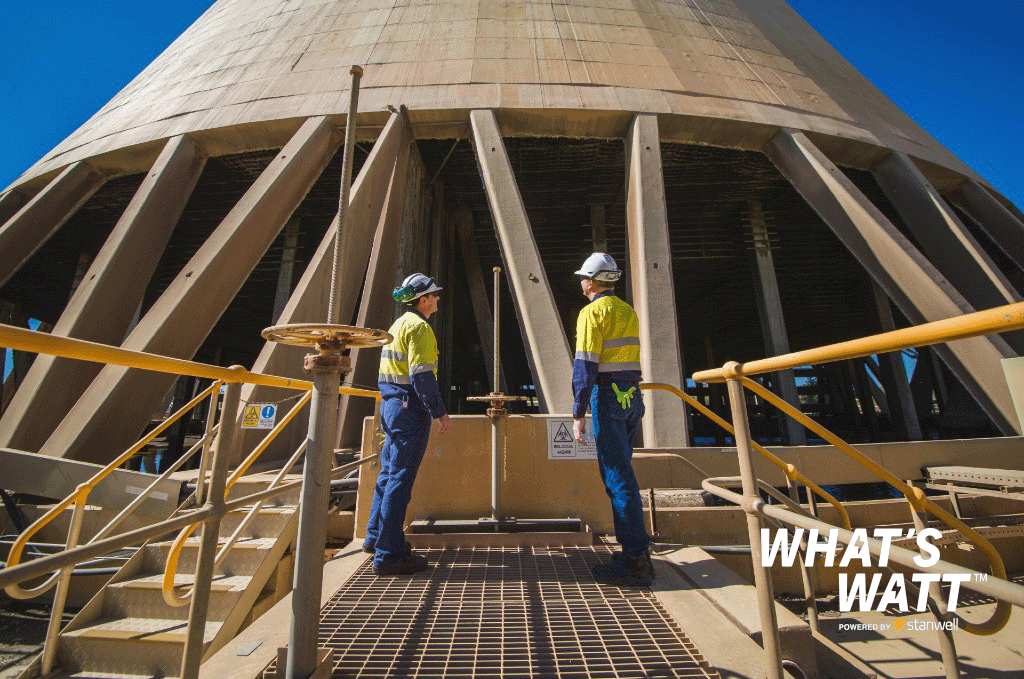If you haven’t shopped around for a new energy provider recently, you could be hurting your bottom line. Business energy is big business – here’s what you need to know.
Electricity is a significant overhead cost for small businesses. In any other aspect of your business, you’d try to find the best suppliers with the most competitive offers, so why should energy be the exception?
Even if you’re happy with your current arrangement, it’s always a good idea to keep an eye on the market and make sure you’re getting the best deal possible.
Energy plans for small to medium sized businesses aren’t exactly like energy plans for residential customers. Depending on the size and nature of your business, you’ll likely be offered plans that are tailored for businesses, and your signature might be sought after by energy retailers who work exclusively or primarily with business customers.
While businesses in some regions of Queensland will find that they only have a choice of one provider, those in South East Queensland will certainly have options. Here’s what you need to consider when you’re in the market for a brand new business energy deal.
How does your business use energy?
Your business is unique, and so are its energy needs. There is no one-size-fits-all solution that will fit perfectly for all businesses, but because the energy usage of a medium to large business is likely to be greater than that of a typical household, most providers will be willing to offer you a plan that suits your requirements.
Energy providers tend to have different usage profiles for different types and sizes of businesses – a shopping centre profile, a data centre profile, an airport profile and so on – and are likely to offer you a plan based on the usage profile that most closely approximates your business, rather than charging you at the same rate a household would be charged for energy.
If your business is large enough, you may find that retailers are willing to tailor contracts specifically for the needs of your business. At the top end of town, retailers will individually profile clients and their daily, monthly and yearly energy usage. The flatter the profile – i.e. the more consistently you use energy – the better the deal will be for you.
For instance, if your business operates 24/7, your profile will be flatter than a business that switches their energy on and off at the same time as most other users. Because your usage doesn’t fall into the same peaks and troughs as the average customer, and instead aligns with the flat profile of the ‘always-on’ dispatchable generators that still make up the majority of Australia’s energy generation mix, you’re likely to be offered better rates.
If your business is not quite big enough to be offered a tailored solution, you could still opt for a time-of-use plan, in which you’ll be charged different usage rates at different times of day. This is a great way to save on your energy bill if a significant proportion of your energy usage occurs during off-peak times. That won’t be possible for every business, but if you’re a restaurant who does the bulk of your trade in the evenings and on weekends, for example, a time-of-use plan could be ideal for you.
Do you understand the discounts, fees and conditions?
If you run a business, you know that offering a discount is a great way to lure in new customers. Energy retailers are no different, and will often offer benefits in order to win your business. It’s important to understand the duration of these sign-up benefits, and how they align with your contract duration – a discount off your bill for a limited period might sound good, but will it actually work out to be a better deal than what the competition is offering over the life of your contract?
This is particularly important with regards to business energy because contracts are generally longer and exit fees tend to be higher for business customers than for residential customers. So while a residential energy user may be able to switch plans and providers regularly, taking advantage of discounts and benefits while they’re on offer and then signing a new deal, your business is unlikely to have that flexibility, and signing the wrong deal could be a costly mistake.
Should you hire an energy broker?
If you’re a larger business, or even a small to medium-sized business with particularly complex energy needs, you could consider engaging an energy broker or consultant to help you find the best deal on your behalf.
The bigger your business, the more room for error there is in choosing an energy provider, which is where a broker or consultant can be helpful. Generally, brokers or consultants are engaged to run the tender process, preparing a business’ request for proposal and comparing the offers made by retailers in response to that request.
Some large businesses, however, will engage a broker or consultant on a long-term basis, or hire in-house energy specialists, to manage their portfolio and closely examine their invoices for errors and opportunities to cut costs.
The key consideration here is clearly whether the money you spend by engaging a broker or consultant will be offset by the money they’re able to save you on your contract, which will largely depend on the size and nature of your business. At the moment, with electricity prices falling – a trend the AEMC expects to continue until at least 2023 – you may find there’s less value in engaging a broker or consultant to negotiate on your behalf than there would be a time when prices are on the rise.
Can you put a price on customer service?
The best energy provider for your business may not be the one that offers the cheapest contract. Of course, money is important, but it may be equally beneficial for your bottom line in the long run to go with a dynamic and flexible retailer who understands your needs and can cater to them accordingly.
You might consider it a priority for your energy retailer to assign you a specific account manager that you can contact directly when questions or concerns arise – if you need information about a change in legislation that affects your energy bill, for instance, or if you have a query about your invoice. Similarly, you may see value in going with a provider that can commit to a short turnaround on invoices, helping you to avoid accruals.
Whichever provider you go with, your business will still be connected to the same network by the same poles, wires and pipes, so it could be customer service and your relationship with your retailer that makes the difference.
Should you go green?
With great (consumption of) power comes great responsibility.
If your business’ significant energy consumption makes you a sought-after customer for energy retailers, it also puts you in a better position than the average household to make a positive difference for the environment by reducing the impact of that consumption.
Despite speculation that COVID-19 may lead to environmental issues being put on the backburner, a recent survey of more than 3,000 people across eight countries found people are more concerned, not less, about action on the environmental front in the wake of the pandemic.
Corporate renewable energy initiatives like the RE100, with more than 290 of the world’s most influential businesses committing to 100 per cent renewable electricity, are indicative of the push for responsible corporate citizens to play their part in the clean energy transition.
Consider, too, that job seekers are increasingly interested in working for sustainable employers. Millennials and Gen Zs, in particular, are more concerned about the environment than any previous generation, and would even take a pay cut to work at an environmentally responsible company.
There are various shades of green, however. Your business could consider signing on to a GreenPower plan, which enables energy retailers to buy renewable energy from government-accredited companies across Australia. When you go with GreenPower, you can choose what percentage of your power you want to come from a renewable energy source, all the way up to 100 per cent. Be aware, however, that the more GreenPower you choose, the more you’ll need to pay.
You can also talk to retailers about a carbon offsetting arrangement, in which the emissions from your business’ electricity use are counterbalanced through the purchase of carbon offset units from climate action plans. Another option is a corporate power purchasing agreement (PPA), in which your business agrees to purchase energy from renewable sources – this can be done physically, by installing on-site solar and wind power, or virtually, by purchasing renewable energy from an off-site source.
If sustainability is important to you, make this clear to the retailers that you’re considering. If they want your business, they’ll offer an energy solution that gets you to your target.
Ultimately, having the power to choose your provider means you have a responsibility not to take your energy for granted. But by shopping around and keeping the above considerations in mind, you can ensure that you’re getting the best deal available for your business and its needs.



